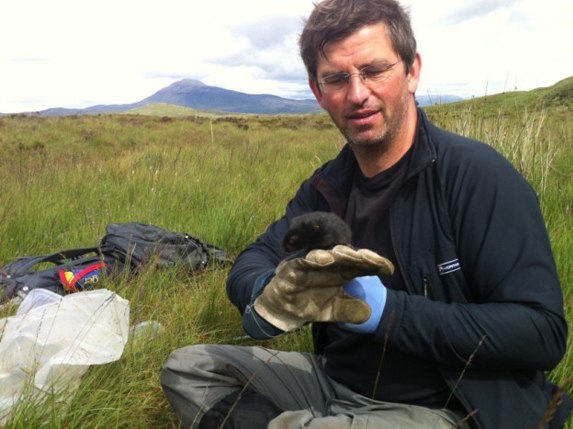TROPHIC INTERACTIONS IN ASYNCHRONOUSLY FLUCTUATING POPULATIONS: PREDATION AND THE COST OF DISPERSAL

On September 21, 2016, Xavier Lambin will present an invited seminar co-organizaed by CIBIO-InBIO’ s APPLECOL Group, CEABN-InBIO and CEF, which will take place at Instituto Superior de Agronomia, University of Lisbon [THIS EVENT HAS BEEN CANCELLED]
ABOUT THE SEMINAR
Classically, predation and other trophic interactions are seen as agents synchronising the fluctuations of spatially disparate populations. While spatial synchrony is the norm, many rodent populations do not fluctuate in unison, with spatial dynamics resembling either organised traveling waves, disorganised spatial chaos or extinction-recolonisation metapopulation patterns. Drawing on empirical studies of rodent populations with diverse spatial dynamics, I will illustrate how asynchrony in prey populations affects predator-prey interactions. While predators may loosely bind the dynamics of prey populations within their foraging range, larger scale dispersal may also free such predators from food limitation, if they are able to exploit multiple asynchronous populations of a given prey species as if they were alternative preys. I will suggest that the outcome of such interactions is contingent upon the cost of predator dispersal that may be imposed by other, larger predators.
ABOUT XAVIER LAMBIN

Xavier Lambin is Professor of Ecology in the School of Biological Sciences at the University of Aberdeen in Scotland. He is a population ecologist with broad ranging interests that span the fundamental to the highly applied. He performs and direct research in population dynamics, evolutionary community and ecosystem and conservation ecology. While much of his research is empirical and field based, he strives to challenge and update ecological theory. He regularly undertakes multi and interdisciplinary projects in collaboration with mathematicians, statisticians, veterinarians, geneticists, social scientists, as well as with a wide range of endusers of science, such as land managers and conservation practitioners. Key research topics include population dynamics, dispersal and spatial dynamics, trophic interactions including disease-host, plant herbivore and predator prey interactions. Prof. Xavier Lambin works mostly with small mammals, voles, but also with a wide range of other species including birds of prey, ants, plants, virus and bacteria. He maintains two long terms studies, one 19 years old involving water voles with a metapopulation structure in the mountains of north West Scotland and another one, 34 years long and centred on cyclically fluctuating field vole population, their predators, food, and pathogens in a man-made plantation forest in northern England.
Event co-organized by: CIBIO-InBIO, CEABN-InBIO and CEF.
